La Frontera 2022: Novel Avenues to Drug Discovery Enabled by Structural and Functional Studies

You’re invited! Join us for the annual La Frontera: Exploring the Cutting Edge of Science event, hosted by the Joe R. and Teresa Lozano Long School of Medicine’s Office for Research and Department of Biochemistry and Structural Biology.
7703 Floyd Curl Drive San Antonio, TX 78229, Medical Building, Classroom 309L
What is La Frontera?
La Frontera is a symposium that brings distinguished speakers together from different backgrounds to attack a common problem from multiple angles. Our sole mission is to challenge conventional thinking to create greater impact.
The Department of of Biochemistry and Structural Biology has teamed up with five subject matter experts to discuss how structural biology tools, including cryoEM, X-ray crystallography, and NMR, help delineate the mechanisms of major biological pathways and advance drug discovery efforts.
La Frontera Session Moderators
 Rueben S. Harris, PhD, Chair and Professor of Department of Biochemistry and Structural Biology at UT Health Science Center San Antonio
Rueben S. Harris, PhD, Chair and Professor of Department of Biochemistry and Structural Biology at UT Health Science Center San Antonio
Dr. Reuben Harris is the professor and chair of the Department of Biochemistry and Structural Biology at UT Health San Antonio. Dr. Harris has a deep interest in mutation research and holds a consistent record of breakthrough discoveries on topics pursed. He has performed fundamental research on mechanisms of mutation for over 25 years and will continue to maintain vigorous research programs in cancer mutagenesis and antiviral immunity and, as opportunities arise, lead explorations into new areas. His lab leads projects through all phases from idea generation to publication, developing new assays and leveraging expertise and technologies from other disciplines to expedite research and enrich answers to challenging problems. Dr. Harris has a strong commitment and track record of mentoring and training the next generation of scientists.
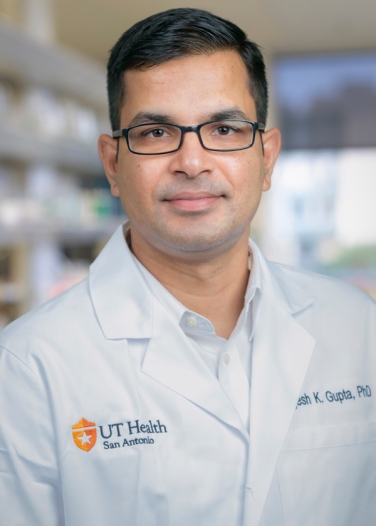 Yogesh Gupta, PhD, Assistant Professor of Department of Biochemistry and Structural Biology at UT Health Science Center San Antonio
Yogesh Gupta, PhD, Assistant Professor of Department of Biochemistry and Structural Biology at UT Health Science Center San Antonio
Dr. Yogesh Gupta joined the UT Health San Antonio Greehey Children’s Cancer Research Institute in 2017 as a Principal Investigator in RNA metabolism and the pediatric drug discovery program. He is also an Assistant Professor of the Long School of Medicine Department of Biochemistry and Structural Biology. His laboratory studies the structures and specificity of RNA modification and chromatin remodeling enzymes to accelerate the translation of knowledge into novel therapies. Dr. Gupta is a structural biologist with expertise in the structure determination of large macromolecular complexes by X-ray crystallography. He has provided important insights into the mechanisms by which methyltransferases and ATP motors alter the structures of nucleic acids to regulate innate immune response and genome integrity.
Agenda
| Thursday, June 23, 2022 | Topic/Title | Presenter |
|---|---|---|
| 2:30 p.m. | Welcome/Opening Remarks | Reuben Harris, PhD |
| 2:40 p.m. | "Power of cryoEM as a research tool" | David Taylor, PhD |
| 3:10 p.m. | “Structural Mechanisms of DNA Replication Initiation” | Franziska Bleichert, PhD |
| 3:40 p.m. | "The Structural Biology of Intrinsically Disordered RNA Binding Proteins" | David Libich, PhD |
| 4:10 p.m. | "Structure-guide rational design of PROTACs" | Daohong Zhou, MD |
| 4:40 p.m. | "Structure and Function of Ubiquitin and Ubiquitin-like Proteins" | Shaun Olsen, PhD |
| 5:10 p.m. | Closing Remarks | Manzoor Bhat, PhD |
| 5:30-6:30 p.m. | Reception in Holly Auditorium Foyer | Hosted by Office for Research |
Featured Speakers
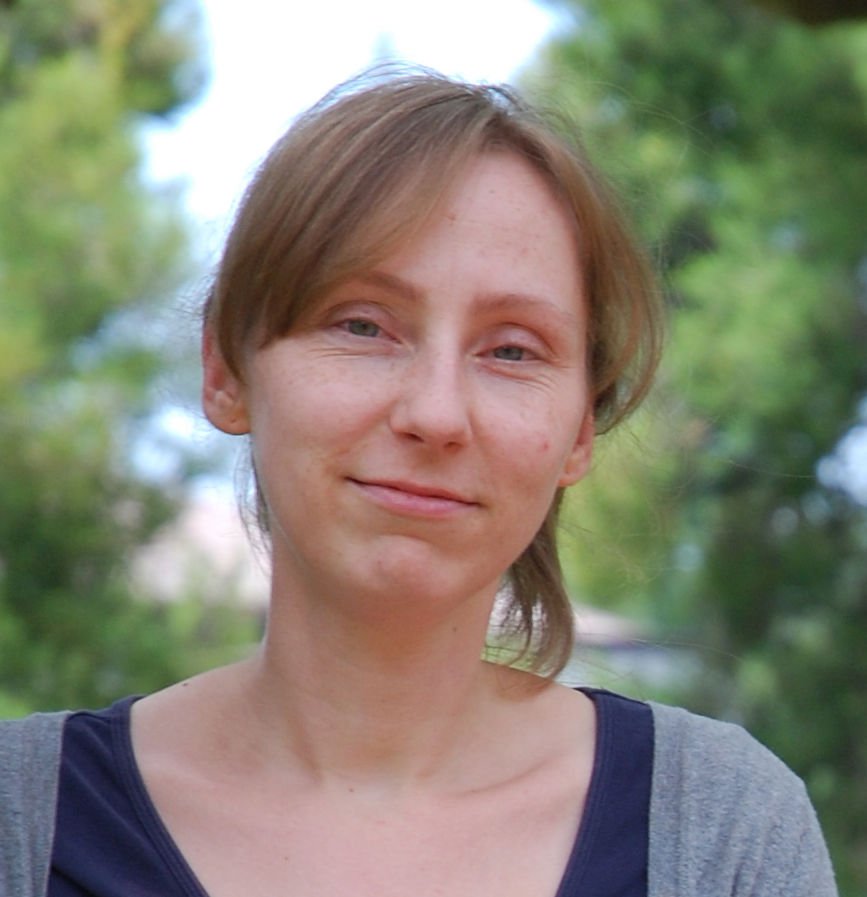 Assistant Professor
Assistant Professor
Department of Molecular Biophysics and Biochemistry
Yale
Biography
Our research broadly aims to understand the functional and organizational principles of nucleoprotein
assemblies to define how they operate at a molecular level in complex biological systems. One long-term goal
of my laboratory is to elucidate the mechanisms of maintaining genome stability, and how they can be targeted
for therapeutic purposes. My laboratory is uniquely suited for conducting the proposed structural biology research. We have a strong track-record in mechanistic biochemistry, structural biology (X-ray crystallography and cryo-electron microscopy), protein engineering, and the purification of nucleic-acid/protein complexes. Our prior accomplishments and the outstanding resources provided by the Molecular Biophysics and Biochemistry (MB&B) and Therapeutic Radiobiology departments, and the Yale structural biology community in general, put us in an excellent position to successfully perform the planned project. In addition to scientific excellence, I have also been strongly committed to training future leaders in scientific research during my scientific career.
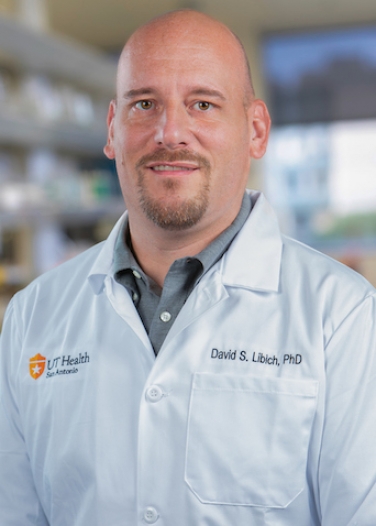 Assistant Professor
Assistant Professor
Director, Biochemical Mechanisms in Medicine, IBMS Graduate Program
Department of Biochemistry and Structural Biology
Biography
David Libich, Ph.D., has been an Assistant Professor of Biochemistry and Structural Biology and a Principal Investigator at the Greehey Children’s Cancer Research Institute since 2017. Originally from Canada, Dr. Libich earned his doctorate at the University of Guelph in Ontario and completed postdoc work in New Zealand and Singapore. From 2011 to 2017 he was a visiting fellow at the U.S. National Institutes of Health. Dr. Libich’s research is focused on understanding how intrinsically disordered proteins, proteins that are functional without defined secondary or tertiary structure, function to promote diseases like cancer. The features of these proteins make them refractory to other structural biology approaches and thus he use s NMR (nuclear magnetic resonance) and a host of other biophysical approaches to probe how these proteins interact with other proteins and nucleic acids. Current projects include investigating the mechanisms the oncogenic fusion protein, EWS-FLI1, the main mutation found in Ewing sarcoma, uses to drive neoplastic transformation, and how the atypical RNA-binding protein SERBP1 mediates translational programs that influence the onset and progression of glioblastoma.
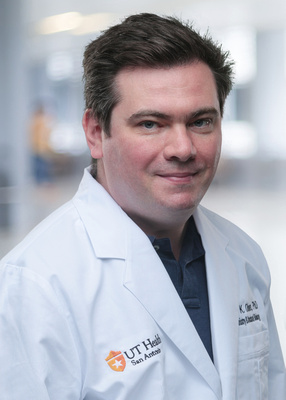 Associate Professor
Associate Professor
Department of Biochemistry and Structural Biology
Biography
Dr. Olsen’s lab research focuses on mechanisms of molecular recognition in protein-protein interactions and on the structural enzymology of proteins essential for cellular function. The majority of his team’s efforts are focused on understanding how enzymes in the ubiquitin (Ub) conjugation cascade (E1, E2, and E3) function together to conjugate Ub to cellular proteins. Motivated by the COVID-19 pandemic, Dr. Olsen and his team have initiated an additional area of investigation focused on elucidating the mechanism and development of antivirals targeting SARS-CoV-2 PLpro with the connection to our core research being the deubiquitinase and deISGylase activities of this enzyme. Over the years, Dr. Olsen’s research has made foundational contributions to our understanding of the molecular mechanism of each step of the enzyme cascades coordinating the attachment of ubiquitin and ubiquitin-like protein to cellular targets. Given the disease relevance of these pathways, the team’s work has important implications for designing new drugs with therapeutic value. Findings have been published in journals such as Nature, Molecular Cell, Science Advances, PNAS, and Nature Communications and has been cited ~5,500 times. This work has also been recognized by a Rising Star award from the Cancer Prevention and Research Institute of Texas (CPRIT) in 2020 and a UT System STARs faculty award in 2021.
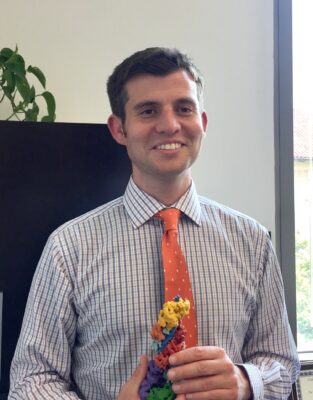 Assistant Professor
Assistant Professor
Molecular Biosciences
The University of Texas at Austin
Biography
David Taylor started as an Assistant Professor in the Department of Molecular Biosciences at the University of Texas at Austin in 2016. There, he is the Director of the Sauer Structural Biology Laboratory and a member the Center for Systems and Synthetic Biology and the LIVESTRONG Cancer Institutes at Dell Medical School. His laboratory is focused on structural and mechanistic studies of CRISPR-Cas surveillance complexes and methods development for cryo-electron microscopy (cryo-EM). David received his B.S. in Biochemistry summa cum laude from Syracuse University in 2008. He completed his Ph.D. with distinction in Molecular Biophysics and Biochemistry at Yale University in 2013. In 2014, he joined the laboratories of Jennifer A. Doudna and Eva Nogales at the University of California, Berkeley as a Post-doctoral Fellow, where he studied the structures of CRISPR complexes using cryo-electron microscopy. He has won numerous awards during his short career. He’s been named a Barry M. Goldwater Scholar, an NSF Pre-doctoral Fellow, an NSF East Asia and Pacific Summer Institute Fellow, a Damon Runyon Fellow, a CPRIT Scholar, and an Army Young Investigator.
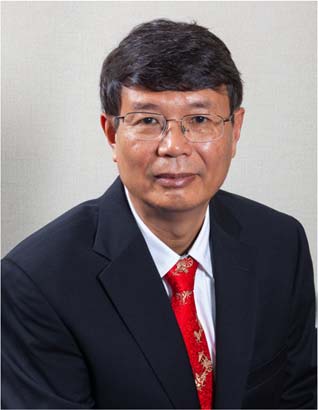 Professor
Professor
Department of Biochemistry and Structural Biology
Associate Director for Drug Development of the Mays Cancer Center
Director of the Center for Innovative Drug Discovery (CIDD)
Biography
Dr. Daohong Zhou is the Joe R. and Teresa Lozano Long Distinguished Chair of Development Therapeutics, Director of the Center for Innovative Drug Discovery, Associate Director for Drug Development of the Mays Cancer Center, and a tenured professor in the Department of Biochemistry and Structural Biology at UTHSCSA. Dr. Zhou’s research is foundational to new therapeutic discoveries for various age-related diseases and the side effects induced by chemotherapy and ionizing radiation. His scientific efforts have led to FDA approval of DT2216, a Bcl-xl PROTAC, in phase I studies, and the establishment of two biotechnology companies, Unity Biotechnology, which is publicly traded (UBX on NASDAQ), and Dialectic Therapeutics, a Texas-based company that has received two CPRIT Awards for Product Development. Dr. Daohong Zhou has published more than 160 peer reviewed scientific articles and book chapters. He serves on several national and international peer review panels, and his research has been well supported by various private and government funded grants.
